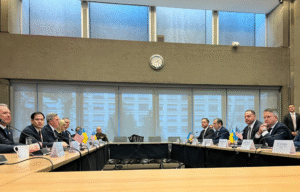Harvard University has taken a bold stance against the Trump administration after the government froze $2.2 billion in federal grants and contracts. The decision, announced by the Joint Task Force to Combat Antisemitism, came in response to Harvard’s refusal to comply with specific directives aimed at combating antisemitism on campus. The task force accused the university of exhibiting a “troubling entitlement mindset” and failing to uphold civil rights laws expected of federally funded institutions. It further cited “disruption of learning” and alleged “harassment of Jewish students” as justifications for the funding freeze.
Former President Barack Obama publicly applauded Harvard for resisting what he described as an “unlawful and ham-handed attempt to stifle academic freedom.” He praised the institution’s resolve in maintaining an atmosphere of intellectual inquiry and mutual respect. Obama also urged other universities to take inspiration from Harvard’s commitment to academic integrity and constitutional values.
Echoing this sentiment, Senator Bernie Sanders also stood in solidarity with the university. He commended Harvard for not giving in to what he termed Trump’s “authoritarianism.” In a sharp rebuke to the administration, Sanders said, “Congratulations to Harvard for refusing to relinquish its constitutional rights to Trump’s authoritarianism. Other universities should follow their lead. And instead of doing pro bono work for Trump, cowardly law firms should be defending those who believe in the rule of law.”
The freeze is part of a broader federal investigation into anti-Israel demonstrations across Ivy League campuses, although only the University of Pennsylvania and Dartmouth College remain unaffected. The probe, initiated by the federal antisemitism task force, closely examined Harvard’s federal funding portfolio, which is worth nearly $9 billion. Critics of the funding freeze argue that the move undermines academic excellence, harms students and researchers, and weakens the United States’ global academic competitiveness. Many believe the decision is more political spectacle than principled governance.
Harvard President Alan M. Garber pushed back strongly against the administration’s demands, describing them as an attempt to impose direct governmental control over the university’s intellectual environment. He confirmed that Harvard, through legal counsel, had formally rejected the agreement proposed by federal authorities. Garber reiterated the university’s unwavering dedication to its independence and constitutional rights, emphasizing that academic freedom is a cornerstone of democracy and must be safeguarded from political intrusion.







